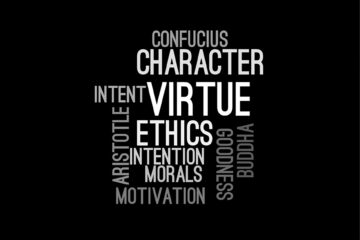![]()
Introduction
State & Sovereignty are two conceptions with a perfect miscibility. These two concepts have impacted largely in the development of the Human Civilisation. The Civilisation, naturally rests upon these two.
From the very prior stage of the human development, these concepts were deemed to be of paramount importance.
State & Sovereignty, form two distinct compounds of a uniform body.
Both of these, have held the order of the society in a proper framework.
But still, there remains so much of ambiguity as regards these two among the ordinary men & hence, it becomes important to properly engulf such conceptions.
In this present article, we will try to comprehend the concepts of a ‘State’ and the ‘Sovereignty’.
The State
The Word ‘State’ has been derived from the Latin word ‘Status’, meaning the ‘Conditions or the Circumstances.’
State, from a Historical Outlook
In the 14th century Europe, With the revival in the Roman Jurisprudence, this term was used to refer to the legal validation of the persons, entitled with the task of governing the masses.
Though, it’s quite difficult to ascertain the exact origin of the state in the light of the lesser historical evidences, But the general assumption regarding its origination is, that the state is a by-product of the historical growth as well as evolution.
In the past, many philosophers as well as eminent researchers and scholars have propounded several theories in order to provide a rational and a legit explanation to the Genesis of the State. Some of them claimed the State to be of divine nature as well as of origin; while a section of scholars held the Social Contract to be the source of its origin.
In a general sense, these were mere speculations as to its origin & are no longer considered valid.
Yet, they have occupied a dominant position in the discipline, because of their effective influence over the major socio-political developments of the contemporary times and also because these can enable a man to understand, both the nature of political organisation as well as the nature of the political obligation.
Let’s have a look on some of the theories;
Social Contract Theory
This theory supports the idea of the State being formed out of an agreement between the men of antiquity. This theory goes back to the pages of history. But it is in the works of Thomas Hobbes, John Locke & Jean Jacques Rousseau that the theory received its prominence.
- In his greatest work, Leviathan[1], Thomas Hobbes, one of the renowned English philosophers of his times, explained the social contract theory. As per him, In the state of nature, man was a self-centric creature who was always concerned about his preservation only. This trait of self-preservation often built a tendency upon him to acquire (whether normally or by force) every sort of wealth or power. Hence, life became a continuous and a never-ending loop of desire for wealth and power. Hobbes sought the individualistic nature of the human being behind all of this. But this individualism was a preference of the other men too. And problems arose when the two were desirous of a thing, which stand limited. Hence, the clashes began & there was no arbiter among them to stop it. It was later realised by the men that to properly utilize the resources between themselves, there must exist an organised framework for determining their rights and activities. In such a framework, there will be a proper allocation of the resources and the maintenance of social harmony. Thus, the men enlightened by their self-interest and their desire for a civil power to regulate them, combined and subjected themselves to a higher authority who will have a final say in every matter and who will also be the supreme authority.
As per his book, Leviathan[2], an individual is entitled only with such rights which were permitted as well as not forbidden by the Supreme Authority. - Another English Philosopher of the 17th century, John Locke contributed to the Theory of Social Contract. In his Second Treaties of Government[3], he propounded that, earlier it was the state of the nature in which the individuals were equal and were free to act in the way they wanted. It wasn’t a lawless state but yes, it was devoid of any superior/governmental authority. There were natural laws to govern their lives. And there was peace and societal harmony. Yet, the state of nature was imperfect and defective. The prime reasons for these were:
1) There was no prescribed/settled/established/clear law.
2) There wasn’t any person with the ability to judge and resolve the disputes impartially.
3) To enforce the just decisions there existed no executive authority.
In a nutshell, a civil authority was then the need of the hour, to secure the person and the property and to apply as well as interpret the laws of nature.
Hence, sensing such a need, the men assembled and formulated a contract. By such a contract, the men surrendered all of their powers to the collective authority who will be entitled to enforce the laws & who will function on the trust and consent of the community and not in its contravention.
Hence, for Locke, State was “only a fiduciary power to act for certain ends”. - Then came, one of the leading political thinkers of the world, Jean Jacques Rousseau. His writings greatly impacted the then French society, culminating in the outbreak of the French Revolution of 1789.
His version of the formation of state was an amalgamation of Hobbes and Locke’s theories. Just like Locke, he supported the idea of the men living in the state of nature; free and simple. But with the emergence of the private property and the distinction between ‘mine’ and ‘thine’, frequent clashes occurred and there remained no superior authority to adjudicate. Hence, after being conscious of the importance of a superior authority for administering and adjudicating on the matters of clashes. The people assembled to form a State. Rousseau, supported the idea of the State being the Supreme Authority, like Hobbes. But he maintained that such authority must express the General Will i.e., the General will of the community concerned.
Theory of Force
When the formation of the State was considered to be on the basis of the Social Contract, there were some political thinkers who regarded the origin and the development of the state to be on the basis of force.
The major proponents of this theory were Franz Oppenheimer, Jenks, Bosanquet and Treitschke etc.
This theory circled around the proposition that the Man is naturally wild and selfish in nature. He has a tendency to forcefully acquire the objects, he is desirous of.
In the primitive stages of human development, these desires led to a series of conflicts.
The physically stronger attacked the weaker and captured all his resources.
In a matter of time, he began exercising his powers over other men, leading to the formation of the clans. The dominant clans subjugated the weaker ones.
Then the tribes came into existence. The clashes then became more frequent. The vanquished tribes accepted the superiority of the victorious ones & the chief of such victorious tribe became the king. The king was also considered to be the Supreme Authority.
Hence, the state came into existence.
Patriarchal and Matriarchal Theory
The Patriarchal and the Matriarchal theories whereas stated that the Primary block of social organization was indeed a family and the state was a result of a continuous multiplication and enlargement of the primitive families.
Sir Henry Maine, one of the thinkers advocating this theory was of the opinion that family as a unit, initially consisted of the man, his consort, his offspring and descent was traced through males.
The exponents of the matriarchal theory hold the same view as that of the patriarchal theorists, but with a minor change that the descent in the case of matriarchal theory is traced through females.
Historical (or Evolutionary) Theory
The historical or evolutionary theory considers the state to be a product of historical growth, the product of continuous development of human society. It does not set out to historically determine the exact origin of the state. It attempts to explain, on the basis of factual data obtained by researches, how from small beginnings the state has through a continuous process of development grown to its present stature.[4]
Marxian Theory
In his book ‘The Origin of the Family, Private Property & the State’[5], Frederick Engels, has elaborated on the origin and the development of the State.
As per the Marxist point of view, in the antiquity, the men lived in a classless society. All of them were equal and subservient to no higher order. The means of sustenance was jointly collected and subsequently shared among them equally. It was hence, Pure & simple.
But, with the emergence of the private property and that of the surplus. The tendencies of the men to acquire the resources increased. This led to the formation of the classes and the initiation of the clashes among the various classes.
The ones with the resources, wanted to retain such resources and hence devised a technique to maintain their self-interest.
They formed a superior body i.e., the State, to monitor and control the clashes as per its interests. The State was formed to ensure that the will of the economically powerful or the dominant political class is expressed and enforced.
The State was hence, not an incentive to control and resolve the disputes among the people, rather it was a machinery to maintain the division of classes and regulate the clashes among the classes as per it’s wishes and interests.
The ones, with the resources, laid the foundational block of the ‘State’ in order to snatch and exploit the rights and resources of the already downtrodden and vulnerable class.
For the Marxists, State was an entity to apply the laws which are favoured by the Capitalists.
It is only in a classless society that the State will be able to fulfil its obligations towards the Proletariat and will also be able to maintain its firm character.
Sovereignty
The word ‘Sovereignty’ has been derived from the Latin term ‘Superanus’ meaning Supreme or Paramount.
Sovereignty is the Sceptre of Authority in the society. It is the claim to be the Supreme political entity, devoid of any subjugation before any higher authority as regards the formulation and the enforcement of the decisions in the society.
Sovereignty, from a Historical Viewpoint
From the Historical viewpoint, the doctrine of sovereignty is quite a modern concept. The writers from both the Ancient and Medieval period had earlier given a little idea regarding this concept. But it was mostly vague and confused.
For instance, the Early Greek Philosophers embraced the State to be the highest authority but it wasn’t kept over and above the law of the land.
The Western world was, in true sense governed by a single ‘ecclesia’. But it doesn’t mean that the power was centralized. The power in the western civilization was divided among the Roman Church, the Holy Roman Emperor, Kings, chartered towns, feudal lords and vice versa.
All of these entities created tensions in the society because of continuous friction among them. There were situations when these entities found themselves at odds with the other ones. Hence, a centralized order was required to flush out such entities, which can disrupt the societal framework.
But this didn’t happen in a single day.
The Historians and the political thinkers are of the view that initially it was a sense of one language, one culture, one tradition and vice versa, which enabled the men of such uniformities to get assembled under one single umbrella.
They didn’t assemble consciously, rather they got assembled unconsciously because of this feeling of oneness.
Naturally, they then supported the kings/rulers to safeguard their interests and protect themselves from the foreign invasions.
Hence, being at the helm, the Ruler/king subsequently derived so much of power and became the sovereign.
It was the establishment of a National Monarchical State which led to the sprouting of the concept of Sovereignty.
The Idea Behind
Generally, the state possesses two forms of sovereignty; Internal & External. Internal Sovereignty enables the State to make and enforce laws applying within its territory. Whereas the External sovereignty is the recognition in international law that a state has jurisdiction (authority) over a territory. It means the state is answerable for that jurisdiction in international law. In the international system sovereignty is the claim by the state to full self-government and the mutual recognition of claims to sovereignty is the basis of international society.[6] (140)
The major characteristics of sovereignty are absoluteness, universality, permanence, inalienability & indivisibility.
For being a Sovereign, it is mandatory that such authority must be absolute and must possess the supreme power to say the final word in the issues before it. It should be subservient to no one. Its powers should extend to each and every corner of the society and its command should be applicable to all of its subjects.
And since Sovereignty stands for the supreme power of the state, it is hence not possible to alienate it from the state.
Sovereignty also ensures that there is a centralised machinery. It never supports the idea of decentralization of powers. Sovereignty can therefore, be indivisible. It cannot be divided.
Though we have different versions of sovereignty, starting from the Monistic view which considers sovereignty to be the sole supreme power over the masses, unrestrained by any law, to the Pluralistic view which considers that the sovereignty is not absolute and it is divided & limited.
But the view which is endorsed generally is of Austin’s.
As per him “If a determinate human superior, not in the habit of obedience to a like superior, receives habitual obedience from the bulk of a given society, that determinate superior is sovereign in that society, and the society, including the superior, is a society political and independent.”[7]
The three prime features of Austin’s view of sovereignty are:
1) It should be determinate
2) It should be legally unlimited and absolute
3) Its Command is the law
But this view has been criticised on many grounds.
Some thinkers felt that the conferment of unfettered powers to anyone will result in a despotic rule. Even if, there is a demand for the centralized order, such conferment will result into an autocratic regime. Hence, there should be a Moral limitation i.e. The Sovereign should exercise powers as per the wishes of the general masses.
The Sovereign, even if adorned with the crown of power, must conform to the basic Principles of Liberty, Equality and vice versa.
Another criticism of the Sovereignty is that, in this epoch of globalisation and interdependence of one state over the another, no state is in a real sense a True Sovereign, because in the contemporary times, the states are bound by the international treaties and conventions. Although, any state is free to break the treaties at its will, but the states generally don’t encourage such steps, as it may create hurdles in the cooperative environment of the International Community.
Conclusion
The State and the Sovereignty constitute a major segment of administering the general public. Both of these meets in a single estuary. To alienate the State from the Sovereignty would mean a societal disorder as the man will use violence and all other uncivil measures to fulfil his desires and the final resultant will be the disintegration the social fabric and a chaotic environment.
But the societal order cannot be maintained, only by the use of a whip.
For this, the Sovereign State is required to gain the Trust, Confidence and Consent of the people.
The Sovereign State can sanction any law it wants, but such laws must be Prescribed, Justiciable, Reasonable & it must conform to the Principles of Natural Justice and must be based upon the Popular Consent.
Only then, the subjects will stand subservient and obedient before the sovereign state.
References:
[1] Thomas Hobbes, Leviathan or (The Matter, Forme and Power of a Commonwealth Ecclesiasticall and Civil), 1651
[2] Supra 1, at 1
[3] John Locke, Second Treaties of Government, 1689
[4] Dinesh Chandra Bhattacharya, Political Theory: A Comprehensive study of theories and principles of politics and government, 91, (9th ed.,2016)
[5] Frederick Engels, The Origin of the Family, Private Property & the State (Original title: Der Ursprung der Familie, des Privateigenthums und des Staats), 1884
[6] Dinesh Chandra Bhattacharya, Political Theory: A Comprehensive study of theories and principles of politics and government, 140, (9th ed.,2016)
[7] Ibid.



0 Comments